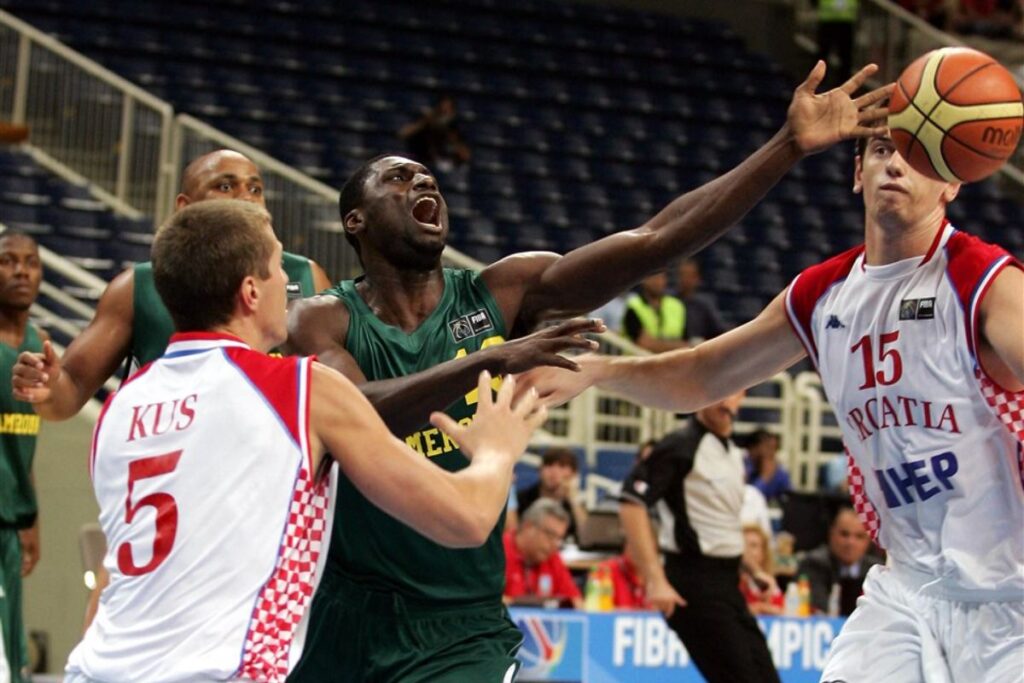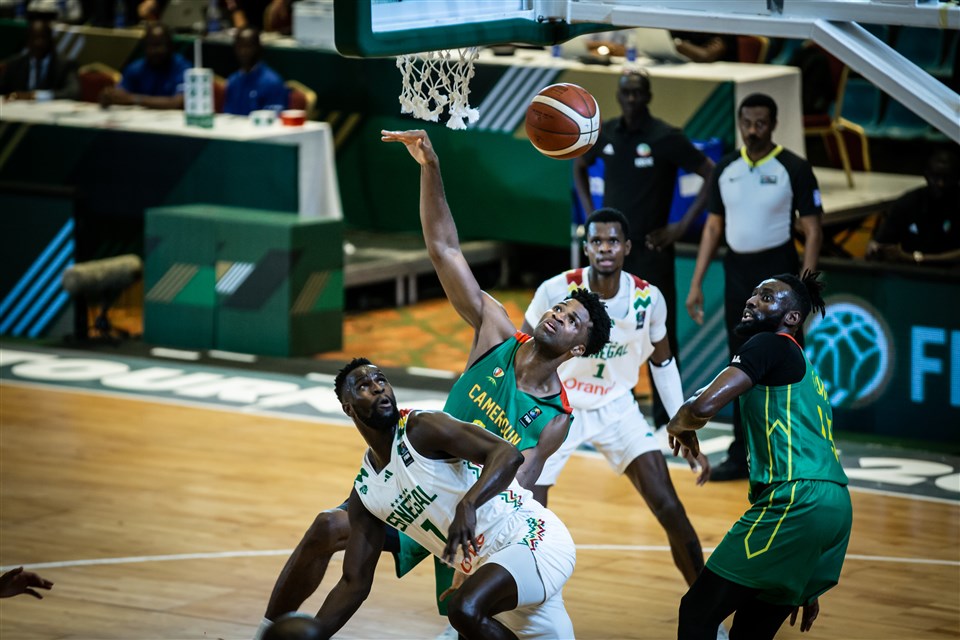This year, Cameroon’s basketball team turned heads last August at the Olympic Pre-Qualifying Tournament in Lagos, Nigeria. Defying expectations, the Central African nation not only competed but triumphed, signaling a potential new era for their basketball program.
The tournament, featuring six teams, became a stage for Cameroon to showcase their prowess. They emerged victorious with a flawless 4-0 record, earning a coveted spot in the 2024 FIBA Olympic Qualifying Tournament (OQT).
This achievement marked one of the greatest in Cameroon’s basketball history, raising questions about the team’s future prospects on the global stage.
Under the guidance of head coach Alfred Aboya, a former UCLA standout and Cameroon national player, the team overcame significant odds.
Ranked 67th in the world, they faced and defeated teams ranked higher, including reigning African champions Tunisia and the favored Senegal in a decisive match. This victory was not just a win but a testament to the team’s grit and determination.
The journey of Cameroon’s basketball team to this point has been nothing short of remarkable. In 2007, at the FIBA AfroBasket held in Angola, they secured a second-place finish, with future NBA player Luc Mbah-a-Moute leading the charge.
This historic performance laid the groundwork for the team’s current success.

Cameroon’s triumph in Lagos means they will be among the 24 countries vying for a spot in the Paris Olympics. Key players like Jeremiah Hill, Jordan Bayehe, and Paul Eboua have been instrumental in ushering in this new era for Cameroon basketball.
They now face the challenge of competing against some of the world’s best teams for a place in the Paris Olympics.
Aboya, who also serves as head coach at NBA Academy Africa, has playfully nicknamed the team “the party crashers” due to their unexpected success despite their low ranking.
The next challenge awaits in Riga, where they will face Brazil and Montenegro in Group B.
The talent emerging from Cameroon has consistently made an impact on the global basketball stage.
Players like Ruben Boumtje Boumtje, Luc Mbah, NBA champion Pascal Siakam, NBA MVP Joel Embiid, Christian Koloko, and Ulrich Chomche represent the country’s rich basketball heritage and its promising future.

The 2007 success was a stepping stone, and now, with talented youngsters like Chomche, who played in the qualifiers in Lagos, the future looks even brighter. Expectations are high for this group of players to secure a spot in the Olympics.
Reflecting on his journey from a former national player to the head coach, Aboya acknowledges the significance of this achievement. His experience as a player in the 2008 OQT in Athens, where they didn’t win a game, contrasts sharply with the team’s current success.
Qualifying for the OQT against top African teams like Tunisia, Senegal, and Nigeria has been both a humbling and proud moment for him.
The story of Cameroon’s basketball team is one of resilience and rising against the odds. Their history suggests that what may seem unthinkable is indeed achievable, paving the way for a brighter future in international basketball.
